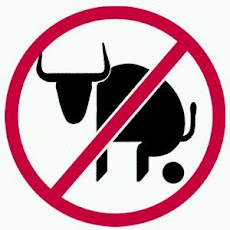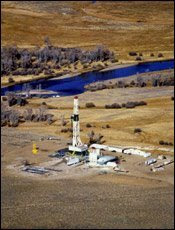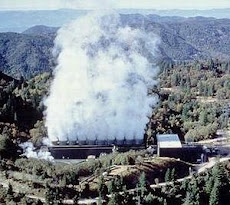Wild horse debate gallops on
By William M. Welch, USA TODAY
LOS ANGELES — The Obama administration's first try at resolving the debate over the wild horses of the West has not gone over well with some.
Animal rights groups say that Interior Secretary Ken Salazar's proposal to relocate thousands of mustangs to preserves in the East and Midwest would compound years of federal mismanagement of the horses.
They want the 37,000 horses now roaming federal lands in the West to remain despite the risk of starvation and conflicts with cattle. In response to Salazar's proposal, they reiterated their stand during the Bush administration: let the mustangs run loose on millions of acres of federal land where beef cattle are raised.
"Why are we, a cowboy nation, destroying the horse we rode in on?" asks Deanne Stillman, author of Mustang: The Saga of the Wild Horse in the American West. "We may be heading toward the point where we only have wild horses in zoos."
Tom Gorey, spokesman for the Bureau of Land Management, the agency that manages the rangelands, said the federal government is aware "of the heritage and symbolic importance of these horses." Even so, the bureau says, the cost of keeping the horses at a sustainable population is far too much.
"We're protecting horses, rangelands and the taxpayer," Gorey said.
TAX BURDEN: Wild horses face slaughter
The wild horse population, which ranges largely in Nevada, keeps growing, as does the cost to the bureau to maintain them. This year alone, the cost of the horse program will be an estimated $50 million, the bureau says.
Much of that money goes to care for and feed 32,000 horses rounded up and taken off 29 million acres of federal land. The Bureau of Land Management says the land cannot sustain such a large horse population.
Taxpayers currently pay to let the horses live out their lives at 11 private pastures and corrals in Oklahoma, Kansas and South Dakota. The horses can be adopted, but few are.
Gorey said the agency needs to reduce the wild herd size to 26,600 horses and to neuter enough horses so the breeding population drops to 17,500.
Salazar's plan is to spend $96 million buying and configuring two ranches and contracting with five private ranches. The properties and what states they would be in have not been identified.
Horse advocates such as Stillman accuse the bureau of consistently favoring ranchers with low grazing fees and say this latest proposal is in keeping with that policy.
"We have almost 300 million acres of public land in the West, and they (the horses) are going to come East. ... That's ridiculous," says Chris Heyde, lobbyist for the Animal Welfare Institute in Washington.
The bureau denies favoring cattle ranchers.
"We don't remove horses so we can put cattle on the range," Gorey says. "We're not trying to make room for more cattle grazing."
Some cattle ranchers like the solution offered by Salazar, himself a former rancher.
Dan Gralian, who manages a large grazing range out of Battle Mountain, Nev., and is president of the Nevada Cattlemen's Association, calls the plan "a great thing, taking this icon of America back to where it originally came from, the East."
He says wild horses and burros are in the West were brought there by pioneers, cattle barons and prospectors. He disputes the contention of horse advocates that the horse is indigenous to the West.
"We were here first — that's the bottom line," Gralian says, referring to cattle ranchers.
Fencing in and sterilizing horses violates a 1971 law that protected the West's wild horses and set aside land for them to roam free, says Ginger Kathrens, a filmmaker who has done documentaries on the mustangs.
"We'd like to see our wild horses staying free roaming on public lands we already own," she says. "If we return some of the holding horses to the land, we think that would be a better solution than sticking them on tourist attractions in Ohio."
Makendra Silverman, associate director of the Cloud Foundation, agrees.
"It's a bad idea because the nation deserves and wild horses deserve to live on their rangelands in the West, on public lands," she said.
---------BLOGGERS NOTE:
So the BLM is concerned about wasting taxpayer money on our wild equines. First of all, the high cost of caring for our wild equines is due soley to the mismanagement of the BLM in conducting un-necessary round-ups to the point where we have more WH&Bs in pens than in freedom. Despite the allegations of the BLM, the horses do manage to thrive and it costs nothing to feed them in the wild.
Secondly, it is nice to hear that the BLM is concerned about wasting taxpayer money.....the 50M a year they say it cost to care for all these (un-necessiarily) penned up WH&Bs is a mere pittance compared to burden put upon tax-payers for the cost of administration of the BLMs Grazing Program,...which, all told, is estimated to be near $500M a year. As we all know, the grazing program benefits a handful of "so-called" ranchers who produce LESS THAN 3% of the Nations beef. So what is $50M per year for a resouce that all Americans enjoy compared to $500M that only a handful of already wealthy "welfare ranchers" enjoy? Time to end the gravy train and REVOKE all grazing permits in wild horse country....let them buy hay and grain like the rest of the farmers and ranchers "in the real world" or find a new line of work. I hear McDonalds is building 33,000 new stores in China,.. perhaps they would like to flip McMadCow Burgers for them there...I hear the managers make good money....in some places upwards of $100,000 per year. Say what? And Im still here?!
------------
Click on title above to go to article and comment;
http://www.usatoday.com/news/nation/environment/2009-10-26-wild-horses_N.htm#Close
Tuesday, October 27, 2009
Subscribe to:
Post Comments (Atom)



















2 comments:
The livestock industry and the BLM have been very successful framing this issue as a "wild horse problem" when the numbers show it is really a "BLM and livestock industry problem". 4 million cows on the public lands, and 20,000 horses, and who is destroying forage and consuming too much water?
There is a solution to this issue and it's cost problem, and it is also the most humane for the horses, and frees the livestock industry from having to be concerned about Wild Horses in the future.
Take the millions of acres of public land guaranteed to the horses in the 1971 act, and the numbers of horses granted protection at that time, and create a number of REAL sanctuaries for them in their natural herd areas.
This would need to be a contained area using natural boundaries (cliffs, mountains, etc..) and perhaps some other man-made boundaries. Within this sanctuary would be a natural predator-prey balanced ecosystem. The horses would not be gelded, sterilized or PZPed. Some would be killed by mountain lions or wolves, some would die in harsh winter weather, the rest would live out there lives free and wild.
We call them Wild Horses because they can live in the wilderness without man's intervention.
This would eliminate the huge expense of round-ups, holding facilities, sterilization, PZP and hay. It would stop the ever increasing stockpile of horses that need to be housed and feed at taxpayer expense.
Really Wild Horses living naturally, exhibiting true wild horse social behavior, could be a great eco-tourist attraction for people from all around the world. Carefully planned so as not to interfere with the horses, the public could observe these magnificent creatures and help support the sanctuary.
Of course some livestock ranchers who lease public land where these sanctuaries would be created would have their leases terminated. To make this idea feasible to even the livestock industry I would suggest that this plan could include funds to reimburse these ranchers for the land no longer leased to them.
Problem solved.
- WIld Horses get to live on into the future in the wild, protected as the law has demanded since 1971
- Taxpayer $$$ saved
- Ranchers have "contained" the wild horses in specific areas at no cost to their constituents.
win-win
spicey
Please send in comments to help stop the round up of 2,500 wild horses in the "Calico Complex" areas of northwest Nevada. The BLM is accepting public comment through tomorrow (Nov 12, 2009)
PLEASE take one minute to submit your comment:
https://secure2.convio.net/ida/site/Advocacy?cmd=display&page=UserAction&id=1337&JServSessionIdr003=607gteeb42.app43b
Post a Comment